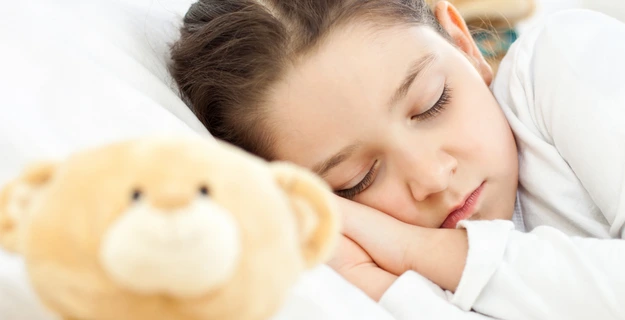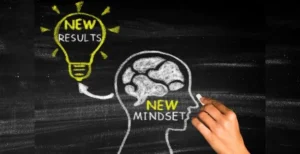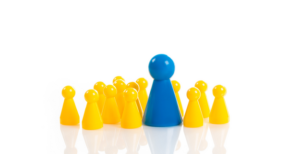Did you know humans are the only possible species on earth who deprive themselves of sleep for no reason? Sleep is generally the most ignored, less regarded activity, commonly perceived as an act of lazies!
However, sleep is mother nature’s greatest gift to mankind. Sleep scientist Matt Walker, emphasizes that sleep is our very own life-support system, a powerhouse. With children, it is of paramount importance to allow them to grow. Sleep is a critical aspect of wellness.
Hence, if you are a parent and are wondering if your child is sleeping a lot, refer to the hours below, sit back, and watch them grow.
0-6 years is a period of rapid development of the brain, and qualitative and quantitative sleep is a strong indicator of enhancing brain efficiency.
New-born babies spend approximately 14-17 hours, Infants around 12-14 hours, Toddlers 11-14 hours, Preschoolers 10-13 hours, and school-age around 9 to 11 hours of sleeping time.
Children experience tremendous development, especially in their early years. It impacts learning, memory, concept acquisition, feelings, emotions, and soaking information.
Basically, everything is neurology, the basis is the human brain! Our brain is a solid hero, of all the interesting pieces, that it has, the one responsible for storing, holding, and receiving information is the Hippocampus. Hippocampus is our information inbox. Children spend a lot of time observing, grasping, and most importantly memorizing every few seconds. Their brain is active, malleable, sponge-like, and alert. The health of the hippocampus in the brain is of utmost importance. Hence, to maintain good hippocampus and brain health, sleep habits play a pivotal role. That’s good news! All children have to do is sleep well!
Here are some quick reasons why sleep must be your best friend!
1. Sleep-pre and post-learning: Studies indicate that sleep is essential for learning and remembering new concepts. Children grasp better when they sleep well before and after learning. Learning enhances when children are exposed to new experiences by having restful sleep.
2. Better grasping: In research, there is a considerable difference in the grasping abilities of sleep-deprived people and those with restful sleep.
3. Enhances memory: The hippocampus does a great job of grasping, collecting, and compartmentalizing information.
4. Qualitative Learning: Sleep is a major contributor to a healthy learning activity. Children have improved attention spans, and focus better, thereby increasing engagement quality.
5. Healthy body and mind: Good sleep is directly related to a healthy immune system and good health. For a happy and fit life, sleep is king!
So, what really happens when you sleep?
The human brain is phenomenal! When people are in a deep sleep, their brain activity is at its peak. There is a lot that happens in and around the brain. Researchers report classic brain waves that light up, which are big and powerful. Literally, termed as Sparks, that shift memory, categorize information, build connections, fade the unwanted, and most importantly protect precious information. These activities help us to exist, establish a routine, and think and act consciously. Now, inversely, if children aren’t restful, or people deprive themselves of sleep, the classic brain waves get less natural time to function and may decide to go on a strike! Resulting in poor concentration, mood swings, difficulty in recall and retrieval, loss of energy, loss of appetite, and struggling to gather energy and live a routine impacting memory and learning.
So, how to achieve good brain health, happy life, and remember better?
There are a few essential tips here.
1. Regularity – Sleeping and waking up at specified times, the key is to be consistent and establish a sleep routine. Do you observe a lot of elderly people hit the bed at 9 and wake up at 5 early mornings? It’s to empower brain health. With children too, it is important to create a healthy cycle. With practice, the body gets conditioned to the sleep cycles and enjoys rapid brain activities while you are dreaming.
2. Keep it cool– Sleep experts suggest that the human body before sleep has to cool down to its normal temperature in order to sleep qualitatively. Hence, it is advisable to cool down the room by whichever means in order to enhance calmness and sleep like a baby!
3. No Screen Time Before Bed– Is it common for you and your children to watch funny videos before sleep? Further, do you struggle to sleep when you are done with gadget viewing? It is extremely important to avoid screen usage in order to relax the muscles. Screen time impacts sleep quality.
4. Quietness, dim lights, and good words– With children it is important to create a suitable, simple environment to enhance quality sleep. It is advisable to dim the lights, avoid bright lights, have a quiet room (as much as possible), and nice words to children to end the day in the form of stories, simple melodies, or silly talks.
The amount of time spent sleeping gradually decreases as babies turn into children then to teens, adults, and age further. The body reacts differently to triggers as it ages, there is no escape from cognitive decline, but sleep is an important piece of the puzzle in order to retain energy, thinking, and processing abilities.
Brain Development and good sleep have a positive correlation. The positives are evident.
With children, sleep is a non-negotiable biological necessity.
So, good luck with your… Sleep. Grow. Sleep. Grow. Repeat.




